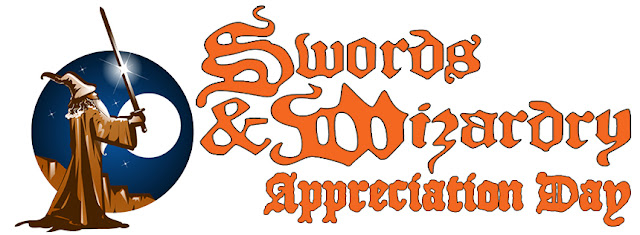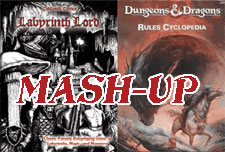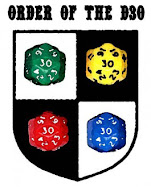Late to jump on the bandwagon here, but this seemed like a fun exercise to help nail down some concepts and background for my campaign...
Without further ado, my answers to Random Wizard's "Ten Questions." There are a few other sets of these around and maybe I'll try to answer those too, just to round things out. We'll see.
Race (Elf, Dwarf, Halfling) as a class? Yes or no?
Yes, definitely. I cut my teeth on B/X, and still run Classic D&D. I strongly believe in races being archetypal in my campaigns, so Race-as-Class is a given. That said, I also believe more variety for my players is better, and makes them happier, so I use the ACKS model of multiple racial classes.
Do demi-humans have souls?
Honestly, I never gave this one much thought. My players haven't tried to have anyone Raised, so it hasn't come up. I use fey races that do not. My elves are more fey than BTB elves, so they would not either. The other "standard" demi-humans in Caldera (dwarves, halflings and orcs) do.
Ascending or descending armor class?
Ascending. Heretical, I know. I use an attack bonus combat system rather than tables or Thac0 and just convert descending on the fly.
Demi-human level limits?
Theoretically, yes. Got to give they some reason to play humans. Of course, I haven't had anyone reach the limit either so it hasn't mattered in practice.
Should thief be a class?
Absolutely. Didn't start on OD&D, so for me the thief has always been a core class. I don't like the granularity of percentile skills though, and use a modification of the thief in Delving Deeper which allows improvement of the skills.
Do characters get non-weapon skills?
That they can choose from? No. Skills related to your class are built into the classes, plus I'll wing it based on the player's character concept and background.
Are magic-users more powerful than fighters (and, if yes, what level do they take the lead)?
Eventually, yes. It's part and parcel of the class. Just need to survive long enough to develop that power. When do they take the lead? Not really sure - I suppose that's variable depending upon the spells they've chosen over time.
Do you use alignment languages?
No, don't make any sense to me. I use cultural/regional human languages instead.
XP for gold, or XP for objectives (thieves disarming traps, etc...)?
Primarily just for monsters and gold. Using your class abilities to reach your objectives is your job. Do your job, you find treasure and then gain your XP from it.
Which is the best edition; ODD, Holmes, Moldvay, Mentzer, Rules Cyclopedia, 1E ADD, 2E ADD, 3E DD, 4E DD, Next ?
Best is ridiculously objective. I have my preferences (Moldvay, Mentzer, RC) but pull the bits I like from anywhere I happen to find them, regardless of edition.
Bonus Question: Unified XP level tables or individual XP level tables for each class?
Individual. It's part of the "balance" between classes as I see it.
Anyone need an OD&D cover?
10 years ago











